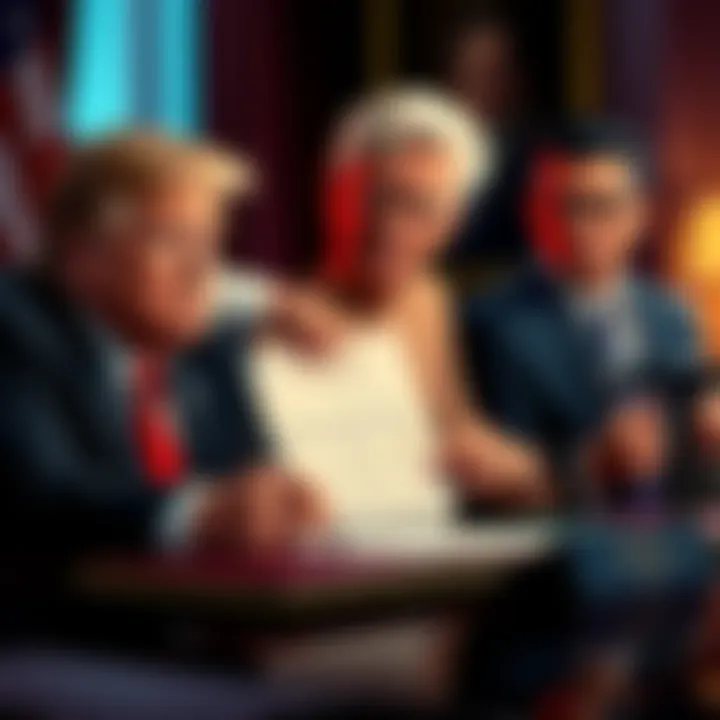President Trump's Pardon of Crypto Billionaire | Sparks Major Controversy
Edited By
Jonathan Lee

President Trump's decision to pardon a well-known figure in the cryptocurrency world has triggered significant backlash. Critics are raising eyebrows over the implications of this move amid ongoing concerns regarding Trump’s use of presidential pardons.
Crypto Pardon Under Fire
Trump’s pardon of CZ, a prominent Binance executive, comes at a time of intense scrutiny over crypto-related activities and regulatory compliance. Critics assert this action exemplifies a broader issue: the potential misuse of pardons to shield allies from legal consequences. “This is just one more instance of ‘crime is legal if I like it,’” remarked one observer.
Voices from the People
A mix of sentiments emerged on forums regarding this decision. Three key themes surfaced:
Misuse of Power: Many people argue that pardoning individuals connected to crypto scandals undermines the justice system. One comment noted, "When you get rid of those arrested for insurrection in his name, what’s next?"
National Impact: There’s a sense that this pardon weakens U.S. standing on the global stage, with concerns about reducing authority. One user emphatically stated, "He’s done more to reduce USA hegemony than any president in history."
Perceived Legitimacy: The sense that this pardon could be viewed as legitimizing questionable actions in the crypto sector reignited debates about accountability. As one individual pointed out sarcastically, "At least he's not wearing a brown suit."
"Yes, sure, this sparks concern, but what about everything else?" - Anonymous comment
The timing of this pardon raises questions too. Will this pave the way for others in the crypto sphere to expect the same treatment?
Key Points of Contention
📉 Many comments indicate significant distrust regarding the pardon’s implications.
🔍 Ongoing debates about the integrity of Trump's pardons are expected to continue.
🔗 "This sets a dangerous precedent," one top comment declared, underscoring fears of future abuse of power.
As public concern builds, stakeholders in the crypto community and beyond will likely keep a close eye on how this development unfolds in the coming months.
What Lies Ahead for Crypto and Pardons
There's a strong chance that Trump's pardon could embolden others within the crypto community to seek similar relief from legal troubles, especially as discussions around regulatory frameworks heat up. Experts estimate around a 60% likelihood that more high-profile figures may attempt to capitalize on this precedent, leading to increased scrutiny from lawmakers and regulators. The potential backlash could drive a renewed urgency for stricter policies on crypto governance, making it imperative for stakeholders to prepare for further legal and operational challenges. If the public outcry continues, it could also pose significant risks to Trump's administration, prompting a legislative push for clearer guidelines on the use of presidential pardons in the future.
A Lesson from the Past: The Whiskey Rebellion
Looking back, we find an unexpected parallel with the Whiskey Rebellion of the late 18th century. Just like Trump's current pardon raises questions around the integrity of law enforcement, the Whiskey Rebellion tested the nation's resolve in enforcing tax legislation, showcasing the tension between governmental authority and public sentiment. Amidst significant pushback, leaders at the time had to navigate a divided public and an evolving economy. This instance teaches us about the enduring struggle between power and accountability, revealing that the true challenge lies not only in the actions taken but in their reverberations through society.
